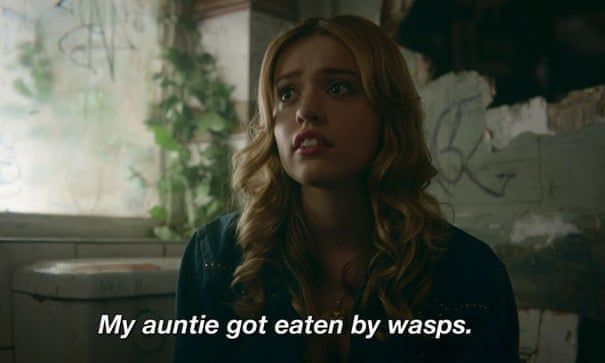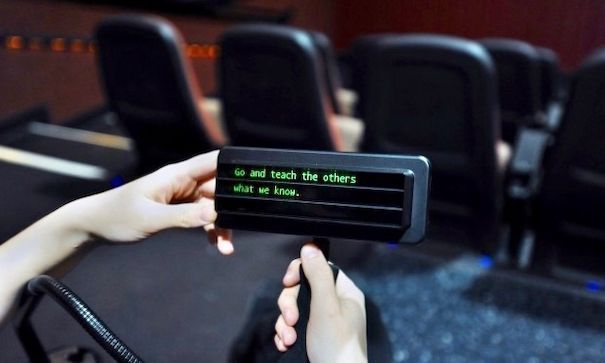UPDATE: Based on feedback from our partners at Art Access, we’ll be showing the Moonlight Sonata: Deafness in Three Movements with Open Captions instead of Closed Captions. For accessibility concerns, please contact Davey Davis at ddavis@utahfilmcenter.org or call 801-746-7000.
As part of our mission to engage diverse audiences in film, Utah Film Center strives to provide accessibility to all moviegoers. This August we are screening two films (Hear and Now on August 6, and Moonlight Sonata: Deafness in Three Movements on August 21) about three generations of a family dealing with deafness. We are pleased to be able to offer assistive devices for people who are deaf and Hard of Hearing at these two screenings.
Captions will be available, using one of two technologies. Captions are the dialogue of the film, transcribed to written text on the screen. The two assistive technologies that use them are Open Captions, and Closed Captions.

Open Captions ![]() are always in view, and cannot be turned off. The text is on the screen for everyone to see, similar to subtitles. These will be used at our August 6 screening of Hear and Now. We play Open Captions at all screenings for which they are available.
are always in view, and cannot be turned off. The text is on the screen for everyone to see, similar to subtitles. These will be used at our August 6 screening of Hear and Now. We play Open Captions at all screenings for which they are available.

Closed Captions ![]() can be turned off and on by the viewer. Theaters provide moviegoers with personal devices that have small text displays. The devices we’ll be using at our August 21 Moonlight Sonata: Deafness in Three Movements screening consist of a small OLED screen on a bendable support arm that sits directly in the patron’s field of view.
can be turned off and on by the viewer. Theaters provide moviegoers with personal devices that have small text displays. The devices we’ll be using at our August 21 Moonlight Sonata: Deafness in Three Movements screening consist of a small OLED screen on a bendable support arm that sits directly in the patron’s field of view.
While our goal is to play all films with captions, the cost and complexity to add them to films can be prohibitive for filmmakers and distributors. We are committed to working with distributors by requesting Open Caption tracks for all films, and conveying to them the importance of providing this feature.





